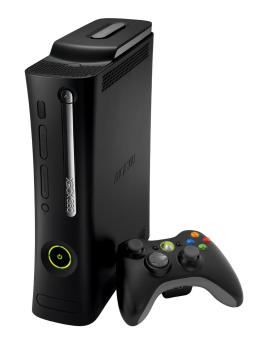
Part 2 of a 2 part blog.
Last time we touched upon a requirement for a portable game system to be a serious threat to the home console market, and discussed that a mass storage device would be almost a requirement in order to take advantage of both the convenience factor and to make the device part of the gamer’s “identity”, so to say.
The next technological requirement for portable video games to take dominance is a presentation on an improved home experience. This is analogous to sticking your portable player in a home dock so that it sounds better. In this case you would place your portable device in a dock and it would be instantly playable on the big screen, complete with the surround sound and the sub woofer (purchased separately, of course). This is not a new concept; Nintendo had somewhat similar capabilities with the gameboy generations back, predating a lot of the music player docks of today. The concept is again proven, even if it may have been introduced too early. Multiple screen resolution chips are already available that could serve a local screen and the dock.
Another technological requirement that could be a real bonus to a portable device is the inclusion of an online service. Already we have eBook readers (Amazon's Kindle ) that are equipped with such capability at a minimal cost, so it could be more than palatable to all parties. This would allow you to get your games from practically anywhere, anytime, for only a small fee of course. Also this feature of being online and gaming would be an area that the home consoles could not compete. For instance, if you are in the middle of a game with an online friend and need to leave, simply take it with you. You leave the big screen behind, but the game is with you.
Beyond that, a contributing factor may not be the portable machine itself but the cost of development. Today it costs on average 9 million dollars for a major company to bring out a video game, as compared to roughly 1 million for a portable game. These are different development efforts for a similar title, often being done by different companies. Having the capability of writing for both the portable and home console market with a single effort would lead to increased profits.
As it stands I feel confident that Home Consoles are not going anywhere today, nor do I think they will become obsolete any time soon. But as video gaming becomes more and more accepted and portable devices become more capable (especially if they get a home user expansion dock), a home console may be the CD player of today. Yes, it works, and everyone has had them, but why bother?
Aloha from the beach,
greg


